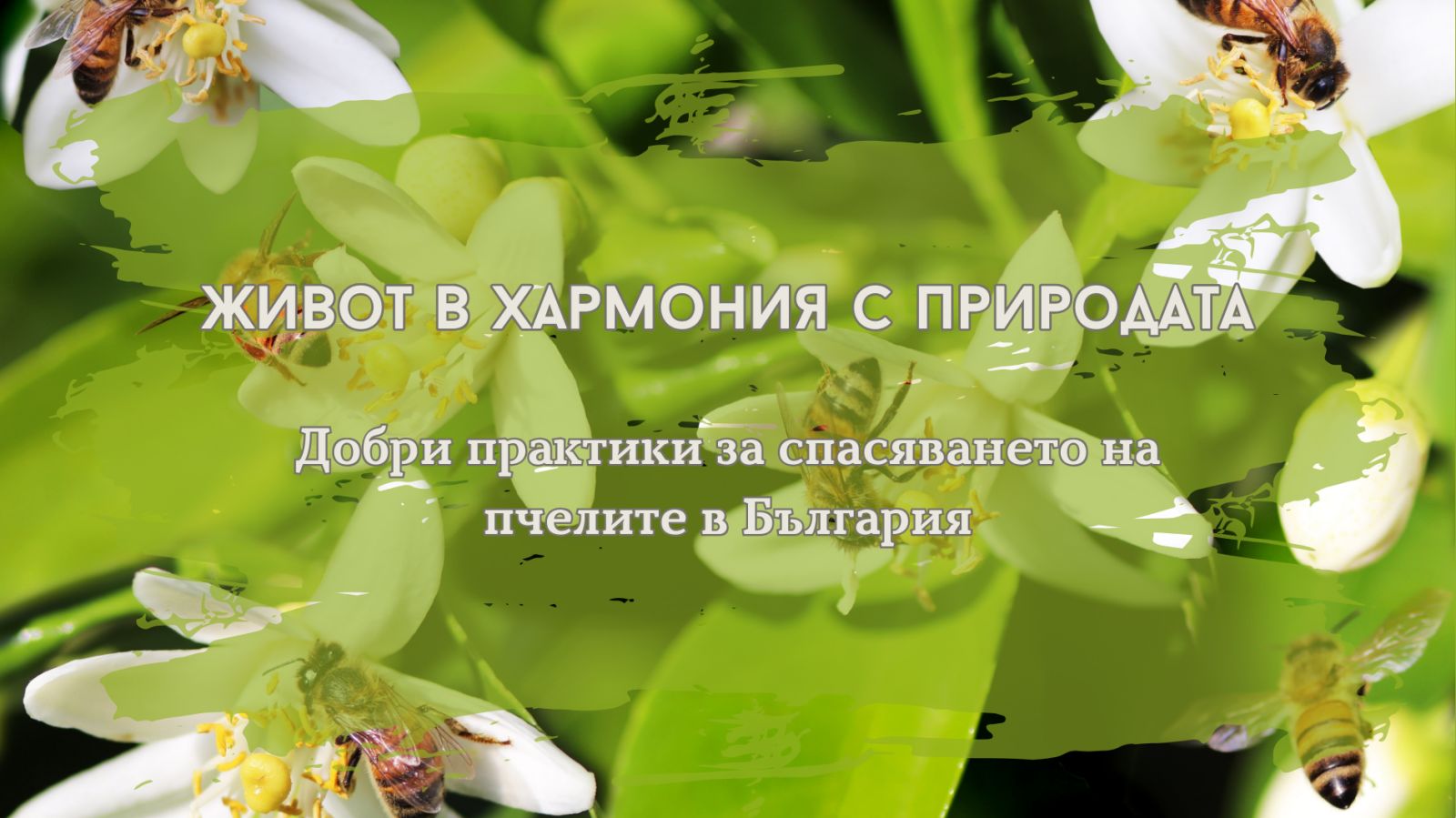Living in Harmony with Nature
Good Practices for Saving Bees in Bulgaria
“Living in Harmony with Nature” is this year’s theme dedicated to Biodiversity Day, which we celebrate on May 22. The theme reminds us that we are part of nature and are responsible for both our environment and the preservation of the planet’s biodiversity. The diversity of animal and plant species is of utmost importance for sustaining life. Each species fulfills its unique role. Its drastic reduction or complete disappearance disrupts the balance and leads to the collapse of natural ecosystems. The consequences are associated with negative impacts on the climate, living conditions and the possibility of providing food. Prerequisites that threaten man, his health and the future of the planet.
Convention on Biological Diversity
In an attempt to stop adverse trends, faced with the challenges caused by the inharmonious use of natural resources, in 1992 humanity adopted the Convention on Biological Diversity. A document whose main goal is to protect all living organisms and ecosystems on the planet, by regulating and promoting practices for the recovery of endangered species and the introduction of sustainable agriculture.
The importance of bees for sustainable agriculture
A key role in sustainable agriculture is played by the so-called natural pollinators such as bees. The decline in their population is worrying. If this trend continues, it could be the cause of a future food and economic crisis.
Why are bees so important for agricultural crops? – because 75% of them bear fruit thanks to the pollination carried out by bees. In terms of measures to save bees and other natural pollinators, we in Bulgaria can boast of good practices that give results.
Examples of good practices for the protection of bees
First of all, planting honey-bearing and wild plants such as thyme, lavender, phacelia and clover. These plants and herbs create colorful stripes along the fields, which are not only beautiful, but also attract bees because they are a source of nectar and pollen.
Limiting the use of pesticides, especially during flowering periods, is an extremely important practice. The ban on harmful chemicals such as neonicotinoids within the European Union, including in Bulgaria, is yielding results. In addition, farmers are increasingly choosing more gentle methods such as spraying early in the morning or late in the evening, when bees are not active. Biological or selective preparations are also used that do not affect natural pollinators.
The interaction between farmers and beekeepers is also important. In Bulgaria, there is a regulation according to which beekeepers must be notified before treating agricultural crops. This makes it possible to protect apiaries and avoid poisoning. The registration of apiaries and cooperation between farmers and beekeepers are key to achieving and maintaining a good balance.
In recent years, urban beekeeping has also been encouraged. In this regard, the interest of children and young people in topics related to the restoration of nature and specifically the conservation of bees is stimulated. Proof of this is the promotion of educational projects and initiatives such as “Save the Bees”, “European Pollinator Week”, which introduce both children and adults to the role and importance of bees in our lives. During these campaigns, people receive useful advice on what plants to plant in their garden, how to make a “bee hotel” and why it is important to buy honey from local beekeepers.
Results of efforts made to live in harmony with nature
The implementation of bee conservation practices leads to improved agricultural productivity, reduces dependence on chemicals, restores the balance in nature and contributes to improving the quality of life. Therefore, efforts to conserve bees are a serious investment in a sustainable lifestyle. On the other hand, maintaining harmony with nature makes us more empathetic to other animal and plant species. It teaches us respect and gratitude for nature. It helps us to be more aware in making decisions in the choices we face every day.

